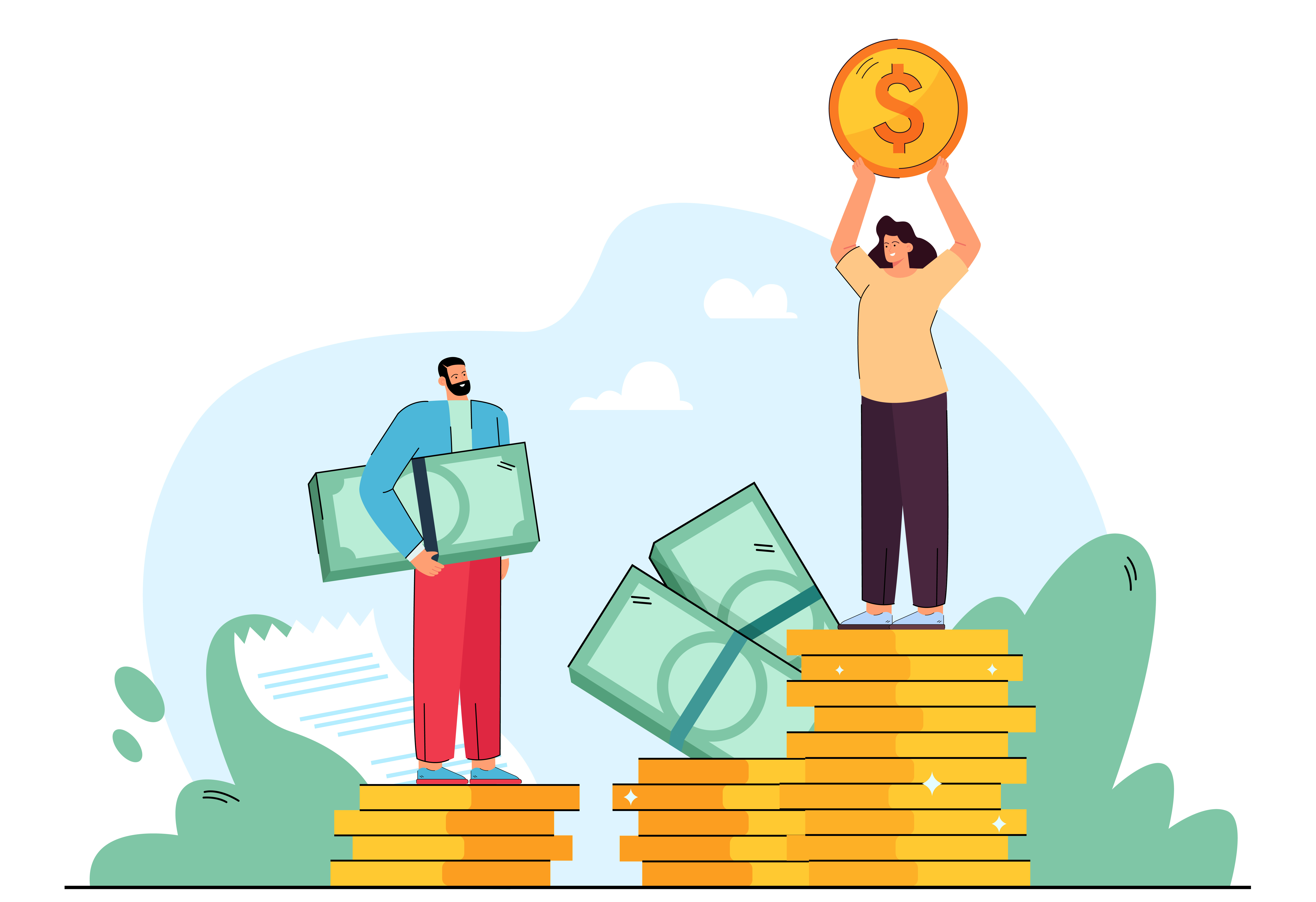Inequality and decision-making
As the differences between the rich and the poor become larger in several countries, many people constantly face situations in which they have less than others or less than what they need. The way we interact with each other, in turn, can definitely play a role in mitigating or intensifying inequality in our surroundings. In my main line of research, I investigate how contexts of inequality, unfairness and scarcity impact our decisions when interacting with others. I am primarily interested in understanding how these challenging contexts influence social and consumer decision-making and what are the neural mechanisms underlying such decisions. Specifically, I investigate how different types of inequality (e.g., inequality in outcomes or inequality in opportunities) affect our decisions, and how individuals think situations of unfairness should be addressed. I am also interested in understanding how individuals’ perceptions of inequality and economic mobility influence their decisions.
Selected Publications and Projects:
Huijsmans, I., Ma, I., Micheli, L., Civai, C., Stallen, M., & Sanfey, A.G. (2019). A scarcity mindset alters neural processing underlying value-based decision making. PNAS, 116(24), 11699-11704.
Micheli, L., Negrini, M., Schuhmann, T., & Riedl, A. Brain stimulation reveals distinct motives underlying reciprocal punishment and reward. Proceedings of the Royal Society B, 289: 20221590.
Micheli, L., Geyskens, K., Goukens, C., & Riedl, A. More opportunities, better outcomes: Does inequality in opportunity call for outcome redistribution? (In preparation).
Micheli, L., Geyskens, K., Briers, B., & Goukens, C. Climbing the ladder: Perceptions of high upward economic mobility increase status consumption among bottom-tier consumers. (In preparation).
The psychology of inequality
Besides impacting decision-making, situations of inequality also influence our perception and beliefs of others and the world. In addition, individual differences in psychological needs and ideology can lead to important cleavages in how people perceive and deal with inequality and unfairness. I am interested in investigating how inequality affects psychological processes such as attribution of individual responsibility, hope and creativity, and in the role of individual differences in confronting social inequality.
Selected Publications and Projects:
Micheli, L. & Gagnon, N. (2020). Unequal chances: Ex ante fairness and individual control. Scientific Reports, 10, 21862.
Azevedo, F., Marques, T., & Micheli, L. (2022). In pursuit of racial equality: Identifying the determinants of support for the Black Lives Matter Movement with a systematic review and multiple meta-analyses. Perspectives on Politics, 20(4), 1305-1327.
Social cognition and Prosocial behavior
Humans are remarkably cooperative. But how do people decide when and with whom to cooperate? Understanding how cooperation emerges and is sustained in groups is especially important in light of emerging societal issues such as health and climate crises, which require a large share of the population to cooperate and adhere to certain rules. I am interested in understanding the neural mechanisms and underlying psychological motivations of our behavior towards others. Some of the questions that I try to answer in this line of research are: What is the role of external incentives in promoting cooperation? How situations of uncertainty influence social decision-making? And how our perception of others’ behavior and social cognition affects how nice we are towards them?
Selected Publications and Projects:
Micheli, L., Stallen, M., & Sanfey, A.G. (2021). The effect of centralized financial and social incentives on cooperative behavior and its underlying neural mechanisms. Brain Sciences, 11(3), 317.
Breil, C., Micheli, L., & Böckler, A. (2023). Golden gazes: Gaze direction and emotional context promote prosocial behavior by increasing attributions of empathy and perspective-taking. Journal of Personality and Social Psychology: IRGP,126(4), 643–659.
Open Scholarship and Team Science
I am also interested in open scholarship. Whenever I can, I try to get involved in replications and Team Science projects, which are a new and fun way to do science collaboratively leveraging the expertise and resources of a large (and often multidisciplinary!) team of researchers. Since I am involved with the Framework for Open and Reproducible Research Training (FORRT), I am particularly interested in helping develop Open Educational Resources that facilitate the teaching of Open Scholarship practices. Some of the publications below were developed as part of FORRT’s initiatives (see https://forrt.org/publications/ for the whole list of FORRT’s publications).
Selected Publications and Projects:
Parsons, S., Azevedo, F., Elsherif, M. M., Guay, S., Shahim, O. N., Govaart, G. H., Norris, E., … Micheli, L., & Aczel, B. (2022). A Community-Sourced Glossary of Open Scholarship Terms. Nature Human Behavior.
Azevedo, F., Liu, M., Pennington, C.R., Pownall, M., Evans, T.R., Parsons, S., Elsherif, M., Micheli, L., Westwood, S., & FORRT. (2022). Towards a culture of open scholarship: The role of pedagogical communities. BMC Research Notes, 15(75).
Azevedo, F., Micheli, L., & Bolesta., D. S. Does Stereotype Threat contribute to the Political Knowledge Gender Gap? A Preregistered Replication Study of Ihme and Tausendpfund (2018). Journal of Experimental Political Science.

Previous Research
Before doing my PhD, I worked as a research assistant in the field of Developmental Neuropsychology. This work has resulted in some publications, which can be seen below.
Publications:
Ferreira, O.F., Costa, D.S., Micheli, L.R., Oliveira, L.F.S., Pinheiro-Chagas, P., & Haase, V.G. (2012). School Achievement Test: Normative data for a representative sample of elementary school children. Psychology & Neuroscience, 5(2), 157-164.
Gianelli, C., Ranzini, M., Marzocchi, M., Micheli, L.R, & Borghi, A.M. (2012). Influence of numerical magnitudes on the free choice of an object position. Cognitive Processing, 13, Suppl.1, S185-S188.
Haase, V.G., Julio-Costa, A., Pinheiro-Chagas, P., Oliveira, L.F.S, Micheli, L.R., & Wood, G. (2012). Math self-assessment, but not negative feelings, predicts mathematics performance of elementary school children. Child Development Research, 2012.
Wood, G., Pinheiro-Chagas, P., Julio-Costa, A., Micheli, L.R., Krinzinger, H., Kaufmann, L., Willmes, K., & Haase, V.G. (2012). Math anxiety questionnaire: Similar latent structure in Brazilian and German School children. Child Development Research, 2012.


